Strategic Nuclear Environment: Pakistan, Iran & North Korea
(Background)
The interim agreement between Iran and P5+1 on Tehran's enrichment of uranium for its power plants, medicinal and other uses (up to 20%) except nukes, is allowed to Iran under NPT which Tehran has signed .US led pressure and rabid hostility since 1979 was to subdue Iran to its wishes like pre Khomeini era, a loyal gendarme in the region. Iranians are a very patriotic, nationalistic and proud people.
I won't be surprised if US led western oil companies will start queuing up for stakes in Iran's to be exploited massive oil and gas reserves and to be part of Iran's industrial renaissance.
India's Iran policy has been stupid and shortsighted but then what to expect from IMF pensioners ruling in New Delhi and sold out empty head think tankers full of US planted ideas and gas...Apart from the damaging vote against Iran in Vienna, so called strategic thinkers or heads foreign policy boards made uncalled for statements that we do not want another Muslim nation to have nukes .What can these ignoranti do or for that matter India. They won't even recognize the spit fallen back on their faces .In between otiose statements of civilsational similarities would be repeated. Iran survived Arabs, Tatars, Mongols and Turks and civilsed them beginning with boorish Alexander of Macedonia.
Iran will play a crucial role in post-US Afghanistan and being a Shia beacon, beholden to battered Shias in Pakistan .It can provide more info on Pakistan .US sacrificed Mumbai for its agents in Pakistan .Worse it would have even loved a war between the two nuclear armed neighbors as some have suggested .But still we love George Bush or any American. A Congress spokesman even suggested that Bush be awarded Bharta Ratna. What more?
By end 2003 early 2004 it was clear to a student of history that US had entered into a quagmire in Iraq, a sort of Chakravu (unbreakable military fortress) and will not easily escape undamaged.
www.atimes.com/atimes/Middle_East/FA07Ak01.html
Its army was broken and useless wastage of treasure only enriched its bankers, financiers and war mongers bringing ruin to the country and its people. It only strengthened Tehran, with Iran supported and financed Iraqi Shias now in power in Baghdad .Iran with help from Russia, even China has seen ff US led west and its Sunni Gulf dependencies in Syria.
I had stood firm in my view that it would be suicidal for Washington or Tel Aviv to bomb Iran and did not take the threats seriously .Netanyahu has been crying wolf so that he can grab more Palestine land and not reach any solution on the problem .The Jewish lobby has the US Congress and administration by its short hair.
So in spite of threats and planted stories of all options being on the table I had maintained that US /Israel were not that stupid .Specially after US roll back and loss of airbases, facilities and agreements in central Asia and return of some pro Russian rulers in its near abroad .Azerbaijan is too much dependent on the West and for the time being Georgia has also signed a trade cooperation agreement with EU in Vilnius but not Ukraine .Its capital Kiev has been engulfed by heavy strikes , as usual funded and promoted from the west .If Western oriented interest try too much ,eastern Ukraine will rise in protests , an area which was added to Ukraine by Ukrainian born Soviet Union boss Nikita Khrushchev .
Below is an old piece about how US led west allowed Pakistan to have a nuke with Chinese gifts and guidance (India, if it had guts could have helped Vietnam likewise –now Putin is courting Vietnam as a counter to rising China.) Pakistan leveraged its nuke know how for missiles knowhow from North Korea
This first in the series of a few earlier background pieces on nuclear environment and Tehran's success in saving its vital interests which has angered Netanyahu and the aged wonders ruling in Riyadh have gone ballistic.
http://www.informationclearinghouse.info/article37031.htm
Watch this space for more.
K.Gajendra Singh 3 December, 2013 .Mayur Vihar, Delhi.
Pl also visit http://tarafits.blogspot.com/
Emerging Strategic Nuclear Environment: Iran & North Korea (first published on 29 May, 2005)Bucharest, Romania
While posted at Dakar in Senegal in West Africa ,I commenced in October 1980 the first leg of my travelathon crisscrossing continents on an Air Algeri flight which after a brief halt at Nouakchott , Mauritania , zigzagged East to Niamey, Niger's throbbing capital (thanks to uranium). Looking down from the plane, the journey across Sahara, crossing river Niger, over Timbuktu and GAO was fascinatingly dull. I wondered if all these little known places and Bamako (Mali), N'djamena (Chad) and Bangui (Central African Republic) might become household words like Kuwait, Abu Dhabi and Dubai, once the reportedly buried uranium wealth underneath were mined to fuel energy needs of last decade of this century and early 2lst century.
But in spite of wake up calls in 1970s of hydrocarbon energy shortage, the corporate interests in oil and gas, which is so profitable, did little to develop nuclear or other means of energy. So Niger has become notorious for its uranium mines for weapons use, and some times for its famines. President George W.Bush used alleged attempts by Saddam Hussein, proved concocted, to get uranium from Niger for weapons, as one of the causes belli to invade Iraq.
How ever, it was the Bhopal ( India) born Pakistan national and German trained metallurgist and nuclear scientist and a globaliser in nuclear weapons technology ,Dr. Abdul Qadir Khan, who last year brought into world focus, Timbuktu ,which even the much traveled Indian journalist Khuswant Singh thought was a only a verbal expression , when I told him about it. For in November 1979 after presenting my letters of credence in Bamako, saying now or never, I undertook a journey by road and by boat on river Niger, to sample some romance of the earlier travelers, to the famous Eldorado, where during medieval centuries a pound of salt fetched an ounce of gold, attracting traders, invaders and scholars making Timbuktu a great centre of Islamic culture and civilisation.
Who would have ever thought in 1979 that Khan would love Timbuktu so much that he would even invest in a hotel there (It appears that Hotel La Colombe (?) has been named for his wife -shades of a minor Shah Jehan).But even Dr Watson would tell Sherlock Holmes why, so that he could travel from Pakistan to Timbuktu and back and supervise transfer of yellow cake to Pakistan and elsewhere. One can easily fly east from Timbuktu to Niger or go by road or river. He went around openly, flying around to Morocco, Mali, Chad, Sudan and every where the maker of the Islamic bomb was a welcome hero.
The media accused Khan last year when the scandal about his proliferation activities exploded, of him even using Pakistan military aircrafts to transport furniture for his Timbuktu hotel project from Pakistan. Pray Dr Watson, what came back in empty Pakistani military aircrafts. Yellow cake, of course. Not even the gullible would believe that such top secret transfers were not known to the all powerful ISI, the Intelligence Services of Pakistan or the western intelligence services. Recently a former Dutch Prime Minister said that he was stopped from moving against Khan by USA's Central Intelligence Agency.
The Muslim world has been oppressed and exploited by the Christian West since centuries and Pakistan's pioneering role is part of the battle to face up to the western challenge, whether as an ally ( against India ) or as an opponent ( sooner or later ). But for its nuclear arsenal, USA after 119 would have come down on Pakistan even more heavily. So Iran has only taken the Pakistan ignited torch to share its nuclear capability for peaceful uses with Muslim and other nations as part of millennia old Jihad versus Crusade. If non-Muslim third world nations too join in this struggle then it would also become a North vs. South struggle and confrontation.
AQ Khan's contribution to Globalization of nuclear weapons technology
Khan ,a Pakistani national ,while employed in early 1970s by Physics Dynamic Research Laboratory ,based in Amsterdam ,a subcontractor to the URENCO consortium specializing in the manufacture of nuclear equipment , was persuaded in 1975 to take over Pakistan's Uranium enrichment plant by Pakistan Prime Minister Zulfiqar Ali Bhutto, who after India's 1974 nuclear implosion had vowed that Pakistan would have its Islamic bomb even if " we eat grass" Khan took over in 1976 bringing with him stolen secret URENCO blueprints for uranium centrifuge and the suppliers list .
Convicted in 1983 in abstentia by a court in the Netherlands for stealing the designs, his conviction would be later overturned on a technicality. Then US supported and financed and Pakistan facilitated Jihad against USSR in Afghanistan was in full swing. The purloined material used for enrichment of Uranium was used in Pakistan's first nuclear device on 28 May 1998. There are allegations that the Pakistan's nuclear weapons origins closely mirror Chinese designs from the late 1960's.
In March 2001, when Al Qaeda had shown its hand and attacked US embassies in Africa and the close collaboration with Pakistan's ISI and military with the Taliban and Osama bin Laden was well known ,Khan , by now a national hero ,was quietly retired but remained an adviser to the new President General Pervez Musharraf . Khan's proliferation activities could become mushroom clouds over the west. Deputy Secretary of State, Richard Armitage in an article in Financial Times of 1 June 2001, expressed concern that, "people who were employed by the nuclear agency and have retired" may be assisting North Korea with its nuclear program. Unsaid were fears of Taliban, Al Qaeda and nuclear secrets passed on to Muslim countries like Libya and Iran among others.
In October 2003, Richard Armitage reportedly briefed Gen. Musharraf and so did Gen. Abizaid, then head of US Central Command. But the nuclear genii was already out of the bottle. With the international inspections of Iran's nuclear operations and the October 2003 interception of a ship headed for Libya and carrying centrifuge parts, Pakistan's game was out in the open , when United Nation's International Atomic Energy Agency (IAEA), weighed in November 2003. In late January 2004 Pakistani officials concluded that Khan and Mohammed Farooq were doing black market deals, but acting on their won, in sale of sensitive technology to Iran and Libya, perhaps for their own personal gain .Musharraf first denied any government involvement (He is adept at denials as Indian Prime Ministers learn sooner or later). His pledged so called harsh punishment amounted to house arrest. It only meant no one could meet or interview him.
Like Pakistan's TV family melo dramas, popular in India too, Khan admitted selling nuclear technology to Iran, Libya, and North Korea between 1989 and 2000 (to North Korea even beyond) and asked for clemency, which was promptly granted. Any international investigation, not including US and Chinese experts would show the truth of western acquiescence. Is murder of former Prime Minister Hariri of Lebanon more important than wide spread proliferation of nuclear weapons.
The network used to supply these activities has turned out to be global in scope, stretching from Germany to Dubai and from China to South Asia, and involves numerous middlemen and suppliers. Khan Research Laboratories' sales brochure had promoted the sale of components derived from Pakistan's nuclear weapons program and critical to the making of centrifuges.
Khan traveled openly during late 1990s to many countries around Niger, with Pakistani missions in Morocco, Nigeria, Sudan, Kenya, Malaysia etc providing him all help .This information is available in media and books. In Cleric Turaibi's Sudan, where Osama was guest after leaving and returning to Afghanistan, Khan met the Sudanese President and the minister of education. Many times he was accompanied by senior serving scientists of Pakistan's nuclear establishment, responsible for Pakistan's military nuclear development. These included Dr. Fakhrul Hasan Hashmi, Chief Scientific Adviser to Khan, Brig.Tajwar, Director-General Security Khan's Research Laboratory, Dr.Nazir Ahmed, Director-General S&TC Division KRL among others. Khan and his aids visited at least 10 African countries in February, 2000 alone.
An investigation into Khans' activities revealed the transfer of nuclear weapons-related technology, centrifuge parts, and blueprints to Iran and Libya through a Malaysian middleman, Buhary Syed Abu Tahir. The network comprised of European middlemen from Germany, Turkey, the United Kingdom, and Switzerland which helped Khan in illicit trafficking and proliferation of nuclear technology through countries ranging from the United Arab Emirates, to South Korea, Switzerland, Germany, Japan, the United Kingdom, and the Netherlands.Times of India, in February and March, 2004, reported that Khan sold Nuke Tech to Syria and Turkey.
North Korea& Pakistan in a Missile for Nukes Tango;
In Pakistan's wide ranging nuclear proliferation, especially with North Korea, almost all Pakistan Prime Ministers and Military Chiefs were reportedly involved. Khan's network reportedly played a key role in North Korea's nuclear program, including both centrifuge designs and a small number of actual complete centrifuges, in addition to a list of components needed to manufacture additional ones, after it had agreed under the 1994 Agreed Framework to freeze its reactors and reprocessing facilities. In return, in 1994 Pakistani Gen. Abdul Waheed sent Prime Minister Benazir Bhutto to Pyongyang for North Korean assistance in nuclear-capable long range missiles and to bring back computer disks containing specifications for missiles. It was reportedly claimed that lack of money on Pakistan's part made trading easier. Soon Khan made the first of his about 13 trips to North Korea, as part of a Pakistani delegation to Pyongyang, composed of both scientists and military officers. At that time Gen. Musharraf was Gen Waheed's director general for military operations.
Khan confessed to helping North Korea with the knowledge and approval of senior military commanders, among which two army chiefs and Gen Musharraff, Gen. Karamat (dismissed by Pakistan Prime Minister Nawaz Sharif thus cooking his own goose later), now Ambassador to USA who secretly travelled to North Korea in December 1997. Khan claimed that Karamat was also aware of the terms of the barter deal between North Korea and Pakistan, as Pakistan test-fired a Ghauri missile in April 1998. Implicitly Musharraf knew too as after becoming army chief of staff in October 1998, he also took over the Ghauri program. In exchange, North Korea got centrifuge components between 1997-1999, with Khan's network providing direct technical assistance between the years 1998-2000.
In 2000, Pakistan's Inter-Services Intelligence conducted a charade raid on an aircraft chartered by the Khan Lab and bound for North Korea because it was claimed that senior military commanders were unaware of Khan's dealings with North Korea. The raid obviously yielded no evidence. As late as July 2002, Pakistani cargo planes were spotted by US Spy satellites in Pyongyang being loaded with missile parts. Now President, Gen Musharraf claimed that these were picking up surface-to-air missiles Pakistan had purchased. In April 2003, a cargo-ship containing aluminum tubing, intended for use as outer casings for G-2(P-2) centrifuges, was intercepted in the Suez Canal following German conclusion that it was headed for North Korea. It was also reported that Khan admitted that during a 1999 visit to an undisclosed location, an hour out of Pyongyang, he witnessed first hand what were described to be three plutonium nuclear devices produced by North Korea.
How ever, only in August 2005, Pakistani President Pervez Musharraf for the first time confirmed, during an interview with the Japanese news agency Kyodo, that Khan had transferred centrifuges and centrifuge parts as well as their designs on to North Korea.
September 19, 2005 Agreement with North Korea
After three years of confrontation, choice insults hurled at each other ( US and North Korea ) and off and on negotiations - a statement of principles intended to form a framework for an eventual agreement was signed on 19 September 2005 ,after four rounds of six-party talks in Beijing. Under intense pressure from its neighbors and the United States, North Korea signed up to the document that commits it - in theory - to scrapping its nuclear weapons and weapons programs and readmitting inspectors from IAEA. The North Korea's neighbors and the US, in return, have agreed to supply energy assistance and move towards diplomatic normalization. The US also promised it had no nuclear weapons on the Korean peninsula and had no intention to attack the North Korea. How ever it is to be seen how the details are worked out November to implement the agreement and how North Korea's nuclear claims would be verified.
While a fundamental disagreement over the scope of North Korea's nuclear capabilities has also not been addressed, the agreed statement looks like the minimum necessary face saver to keep the diplomatic process alive .It was warmly welcomed in the region - perhaps more out of relief than any expectation of an early settlement. The accord is "an important turning point that will help peace take root," said a statement issued by the South Korean government. If North Korea has lied so has USA broken international laws and treaties, invaded Iraq against UN opposition, so there is little trust in each other.
Pakistan's help to Iran;
Following Iran's disclosure of uranium enrichment research and subsequent inspections last year, the central role of Pakistan in Iran's nuclear program was unearthed. According to media reports, Khan reportedly told Inter Services Intelligence officials that he transferred nuclear weapons technology so that other Muslim countries could use it to enhance their security.
Global Security.Org website says that ,"according to confessions by A.Q. Khan and his aides to Pakistani investigators, he reportedly implicated among others, Gen. Mirza Aslam Beg, the commander of Pakistan's army from 1988-1991, and that any nuclear technology shared with Iran had been approved by him. These charges were denied by Beg. But there was evidence that Beg had been informed by Khan of the transfer to Iran in early 1991 of outdated hardware, though it has been claimed that A.Q. Khan had led him to believe that the material would not allow Iran to produce enriched uranium.
"A.Q. Khan has claimed that equipment and drawing shipped to Iran were supplied as a result of pressure from the late Gen. Imtiaz during his tenure as defense advisor to Prime Minister Benazir Bhutto from December 1988 to August 1990. Khan also admitted to meeting Iranian scientists in Karachi at the request of Dr. Niazi, a close Bhutto aide. In return for the help, Iran transferred millions of dollars to foreign bank accounts, with some money funnelled through the Bank of Credit and Commerce International, which collapsed in 1991.
"Some of the centrifuges examined also appeared to have been used outside Iran to enrich uranium, while components of some centrifuges appeared to have come directly from Pakistan. Though some of the machines Iran had bought did not work properly, Iran reportedly still managed to effect significant improvements on Pakistani equipment designs. Despite the design similarities, Iran has nonetheless denied having received them from Pakistan.
"Faced with disclosure, Khan reportedly contacted Iranian officials to not only urge them to destroy some of their facilities but also to pretend that the Pakistanis who had assisted them had died. In early March 2005, Pakistan acknowledged A. Q. Khan had provided centrifuges to Iran, though it denied having had any knowledge of the transactions. "
Iran counters Western opposition;
In his statement at the UN General Assembly, the recently elected President of Iran Mahmoud Ahmadinejad accused the West of "nuclear apartheid" and lambasted them as sponsors of state terrorism around the world. "Those hegemonic powers, who consider scientific and technological progress of independent and free nations as a challenge to their monopoly on these instruments of power ... have misrepresented Iran's healthy and fully safeguarded technological endeavors in the nuclear field as pursuit of nuclear weapons," he said. "This is nothing but a propaganda ploy."
Young, austere and ascetic Ahmadinejad is a product of the 1979 Khomeini revolution and not a Cleric like Khattami or bazzari (trader) like Rafsanjani, his predecessors and stuck to Iran's right to process uranium fuel for its nuclear power reactors as permitted under non-proliferation treaty. He offered partnership to other countries in Iran's uranium enrichment program and sought to broaden the stalled E-3 talks with UK, France and Germany on Tehran's nuclear program. Iran "is prepared to engage in serious partnership with private and public sectors of other countries to implement uranium enrichment program in Iran. This represents the most far-reaching step ... being proposed by Iran." South Africa gave up its nuclear program after its independence after the peaceful collapse of the apartheid regime .Iran's offer was also aimed to attract others with any similar ambitions like Brazil, Argentina, Kazakhstan, and Ukraine. The last two which had inherited nuclear weapons from the Soviet Union after its collapse, surrendered them.
Ahmadinejad said Iran would not accept "nuclear apartheid" that permitted some countries to enrich fuel, but not others. "We're not going to cave in to the excessive demands of certain powers," Ahmadinejad said later at a media conference. He correctly insisted the nuclear Non-Proliferation Treaty, or NPT, gave every signatory the right to produce nuclear fuel, an interpretation wrongly disputed by the West. He insisted that Iran's program was purely for peaceful civilian energy purposes and said Tehran would cooperate with the IAEA, although he hinted that it would consider withdrawing from the NPT if the matter was sent to the Security Council.
He denied media reports that Iran would share nuclear technology with other Islamic countries, saying that his remarks were quoted out of context. He "thanked South Africa who could potentially be a negotiating partner," Ahmadinejad said, adding that Iran will not limit the cooperation to only some countries. In an interview with CNN, he did not rule out steps for an oil price rise if sanctions were imposed on Iran." Any intelligent, healthy, smart human being should use every resource in order to maintain his or her freedom and independence," he replied when asked about the oil weapon. Iran "has the means to defend and obtain its rights."
U.S. and EU officials were disappointed with a British Foreign Office spokesman saying: "This was an unhelpful speech on which we will now want to consult our partners on the IAEA board of governors." French Foreign Minister Philippe Douste-Blazy said the option of reporting Iran to the U.N. Security Council "remains on the agenda." A senior US State Department official privately briefed the media."It's a very aggressive speech which would seem to cross the EU3 red line, especially in one very important regard with respect to enrichment."
Earlier addressing the UN, Condoleezza Rice, the US Secretary of State, demanded that Iran return to the negotiating table with the Europeans. "Questions about Iran's nuclear activities remain unanswered despite repeated efforts by the International Atomic Energy Agency and after agreeing to negotiate with the European Union," she declared. "Iran should return to negotiations with the EU and abandon for ever its plans for a nuclear weapons capability."
The action has now shifted to Vienna, where a critical meeting of the board of the IAEA, the U.N. nuclear watchdog, began on 19 September. While European diplomats in Vienna said the West had the support of at least 20 countries on the 35-member IAEA board, Russia, China, India and Pakistan were reluctant to send the dispute to UNSC.
Earlier on 18 September, Iran warned the board of IAEA that "Our advice to the agency is to review Iran's case tomorrow logically and realistically to avoid making the case more complicated," Foreign Ministry spokesman Hamid Reza Asefi told a weekly news conference. "We haven't started (uranium) enrichment yet but everything depends on the result of tomorrow's meeting," he said.
Western Reaction;
"For Iran, nuclear technology is a source of national pride and a demonstration of its political and technological independence from its former colonial masters," says Daryl Kimball, executive director of Arms Control Association, a non-partisan organization that researches nuclear issues. Kimball adds, "This is much more complicated than a simple economic and energy calculation."
From the Western corporate controlled media, a more independent Christian Science Monitors' headline on 19 September that "Iran bids to redefine nuclear limits- Iran's president challenges the sway of Western powers" perhaps sums up best the battle between nuclear haves and have-nots. It commented "Ahmadinejad declared at the U.N. Saturday that nuclear power was an "inalienable right" for Iran and accused the West of practicing "nuclear apartheid" by depriving it of nuclear know-how. In his address, President Ahmedinejad accused the US of trying to divide the world into "light and dark countries." The US was failing to abide by the Nuclear Nonproliferation Treaty (NPT) itself, he charged, with a doctrine that includes preemptive strikes and developing a new generation of tactical nuclear weapons.
"It is, of course, an issue of proliferation, but really it is about the nature of the [Iranian] regime, its politics, and its ambitions," says Shahram Chubin, head of research at the Geneva Centre for Security Policy. The dispute masks a power play "on both sides," between Iran and the US, says Mr. Chubin, who runs an annual arms control course for diplomats working on the Middle East. "It's a question of who is going to dominate the regional order." Chubin should honestly admit that the developing world supported by Russia, China, India and others is confronting Western nuclear hegemony, inequitable in this sphere as it is every where.
Libya
Once Libya decided to 'come clean' on its weapons of mass destruction programs the implications on A.Q. Khan and, possibly, Pakistan were clear. Started in the early 1990s, Libya's disclosed uranium enrichment program appears based on both Pakistan's centrifuge designs, with some of the centrifuges having been flown there from Pakistan. Khan confessed to meeting with Libyans in Istanbul, Turkey, in 1990. Libya was also told by the Pakistanis how and where to acquire additional components for this program. Components manufactured at a facility in Malaysia were intercepted by the United States aboard a German-registered ship on their way to Libya in October 2003 after having been spotted whilst going through the Suez Canal.
Other Muslim Nations:
According to the minutes of a meeting of Select Committee on Foreign Affairs of the British Parliament, its chairmen described Dr. AQ Khan "history's greatest nuclear proliferator". Dr. Gary Samore from the International Institute for Strategic Studies said , " I think we know from documentary evidence that representatives of AQ Khan approached Iraq in the months leading up to the 1991 war, and that Iraq never followed up on that offer. That is one case. According to public reports, supposedly AQ Khan approached both Syria and Saudi Arabia, both of whom, for whatever reason, decided not to purchase his services. I think we have to assume that AQ Khan knocked on every door. We may very well learn that he had contacts with other governments in the Middle East but whether anybody actually bought anything, at this point in time, I am not aware."
While there has been no report of any nuclear program in Saudi Arabia in such a secretive society but with such wealth it cannot be ruled out. It has very close military relations with Pakistan. It is well-known that Saudi Arabia granted monetary support for Pakistan nuclear program throughout its duration. Saudi Arabia which considered himself as the leader of the Sunnis was happy that Pakistan succeeded in acquiring the Islamic bomb. A home of Wahabbis , an ideology which it exports , even to Muslim countries ,it kept on denying that there are no Al Qaeda groups in the Kingdom .After every Al Qaeda attack it claims that there are no more left .No one know what is boiling inside the cauldron.
Israel's Haaretz on Crisis;
Yossi Melman writing in Haaretz of Israel, the main beneficiary if Iran were stopped in its tracks, said," the delaying tactics that Iran has perfected over the past two and a half years are proving themselves yet again. Despite the fact that the "new" proposals voiced last night by Iranian President Mahmud Ahmadinejad contain nothing new, the international community is able to see them as a ladder to help him down from his high perch.
The Iranian president is proposing the establishment of a new international monitoring body to supervise his country's uranium-enrichment program and ensure that the finished product, which the Iranians say is for peaceful purposes only, is not used to produce nuclear arms."
In truth the monitoring body IAEA already exists but the Iranian proposal does contain a semblance of compromise, and will presumably allow the board of governors of the IAEA, to again put off making a decision - one that has been put off repeatedly for more than a year now.
"Opposing voices are coming from Washington, too - not surprisingly. A decision to transfer the matter to the UN Security Council will severely shake the international markets, and send oil prices skyrocketing to $70 and maybe even $80 a barrel. A significant rise in oil prices could work against the Republicans - already weakened in the wake of the botched handling of the Hurricane Katrina disaster - in the upcoming elections to Congress in November."
In "UN Security Council, there is no chance of the body imposing sanctions on Tehran - both due to the oil crisis that such a decision could spur, and because Russia and China would veto such a move.
"Iran is looking to buy time so that, under the cover of its overt uranium-enrichment program, it can secretly develop infrastructure and fissile materials that will facilitate the production of nuclear arms. But Iran also fears international isolation and - even more so - the possibility of coming under attack. Therefore, Ahmadinejad's speech could serve as a convenient tool for all those involved in the Iranian game to put off the decision that everyone is so afraid of."
Developing nations and India;
As for Iran, it resumed its work at the plant near Isfahan in August, where uranium oxide is converted to uranium hexafluoride gas – but only under the watchful eyes of the IAEA inspectors. This gas is the feedstock for centrifuges that enrich uranium to varying degrees: 4 percent for power plants, 20 percent for research reactors, and 90 percent-plus for weapons.
As the West does not have majority at the IAEA meeting, they settled on asking Iran to suspend its activities related to uranium enrichment, and for the IAEA secretary-general Muhammad El Baradei to report on the issue by September 3. El Baradei's 15-page report was a mixed bag. While insisting that Iran maintain transparency, the report did not invalidate the IAEA's earlier conclusion that it had not found evidence that Iran was engaged in a banned nuclear weapons program.
The only valid basis to take Iran to the UN Security Council for its breach of the global nuclear non-proliferation regime is enshrined in the NPT. Following the IAEA meeting, Russia – which is building a civilian nuclear power plant near Bushehr, said that it saw no evidence that Tehran was violating the non-proliferation regime. Many in IAEA are cool to western bias and belong to the NAM, like Brazil, India, Indonesia, and South Africa. Rajmah Hussein of Malaysia, the current NAM chairman, reiterated NAM's position that all countries have "a basic and inalienable right" to develop atomic energy for peaceful purposes.
Wrote Dilip Hero recently,"NAM members note that while Western nations repeatedly ask why Iran is so insistent on building nuclear power plants when the country has vast reserves of oil and natural gas, they never pose the same question to the Russians, who have built a large number of nuclear power plants despite having the largest natural gas reserves in the world. In any event, according to a recent estimate by British Petroleum, oil consumption in Iran was rising so fast that the country would become a net oil importer by 2024.
"By design or accident, Iran has positioned itself as a champion of the third world, with the courage and conviction to stand up to the Western powers. This has won it quiet admiration from many NAM governors, who fear that the limitations imposed on Iran could eventually extend to them. The experience of the past few months has made it clear that any further pressure on Iran to relinquish its right to uranium enrichment at the forthcoming quarterly meeting of the IAEA Governors will likely cause an open fissure with the developing world. The double standard applied in implementing nonproliferation is coming home to roost."
Indian dilemma;
Nothing seems to be more important than Iran for USA which took up the bulk of George Bush-and Indian Prime Minister Manmohan Singh tête-à-tête. For India it has become a major problem in its rising energy requirement security program .It needs natural gas from Iran and nuclear power technology from USA .It was a major problem for Manmohan Singh in New York for the UNGA session, which was meant to reform it and expand the SC membership in which India deserves to be added.
It has became clear that if at the forthcoming IAEA board meeting if India did not support the US move , the US Congress would not change its domestic laws to facilitate the sale of civil nuclear energy equipment and technology to India. It was a Republican Congressman from California, Tom Lantos , a member of the India-US Caucus who while supporting the move to sell US nuclear power reactors and technology to India, made it conditional on India showing "a degree of reciprocity", specifically on the US effort to isolate Iran.
What is deeply worrying that Lantos' views were echoed by virtually all members of the House International Relations Committee, cutting across party lines, many members of the India Caucus in the House? If this was how India's friends viewed the Indo-US agreement on nuclear cooperation, what about India baiters.
Was Lantos' outburst "a maverick effort or was it orchestrated by the White House to mount pressure on Delhi, without harming the teflon coating of shared values and enduring relations that Bush had worked so diligently to create? If it's the latter, then what could India do beyond what it had already done to reassure the US that it shared its goals with respect to Iran, but disagreed on the means adopted? "India had already supported an IAEA's resolution expressing concern over Iran's decision to resume the enrichment of uranium after disabling the IAEA's monitoring systems. Iran has to fulfill its commitments as a signatory of the NPT and announced India's support for the attempts being made by E-3 to find a way to resolve the differences without resorting to coercion.
USA has been openly demanding that India back out of the Iran-Pakistan-India gas pipeline project? Finally, there was the nagging worry that if India gives in, Iran will only be the thin end of the wedge of American demands. While George Bush may assure Manmohan Singh that he stood by their July joint statement of nuclear cooperation and hoped that Congress would give its approval.
Apart from danger of becoming almost a lame duck President, the US has a long record of signing agreements and treaties only to have Congress refuse to ratify them later. "What is most disturbing about the attempt to change the laws governing nuclear sales to India is the way in which the issue had become embroiled in the larger one of constitutional prerogative. When Burns presented the case for a relaxation of existing laws to exempt India, many members of the committee rounded on him for daring to make commitments to India without first consulting the House of Representatives and the Senate. Even if the administration got past the House of Representatives, it still had to face the Senate. "
Indians who look on US strategic relationship with dreamy eyes might look at the state US led West has reduced Pakistan to .India might also look at the fate of USA's decades old Nato ally Turkey, where both needed and still need each other and to what extent to rely on USA .A Turkish Deputy Prime Minister told the author, who spent nearly ten years in two tenures as diplomat in Ankara."Mr Ambassador, you can not trust the Americans, even on what they give you in writing."
Pak Israel make up in Turkey;
The recent meeting between the Foreign Ministers of Pakistan and Israel in Istanbul with encouragement from Turkish Prime Minister Erdogan could perhaps be the beginning of a far reaching developments-post Hyper power USA 's system now exposed at home by Hurricane Katrina while the Iraqi quagmire is deepening. In post US withdrawal scene, in the region there are four middle level major players, Israel, Pakistan, Iran and Turkey, but only Turkey does not have a known nuclear bomb program. USA will have to rely more on Israel, which reportedly has 100 nuclear bombs.
It was a year after the US invasion of Iraq that Israeli Prime Minster Ehud Barak told Vice President Dick Cheney that USA had messed it up in Iraq and had no back up plan either . The fate of the region may not be decided by Turkey, Israel, Iran and Pakistan but they have a major role to bring in peace and stability to the region and safe guard their interests.
In 1995 when Dr AQ Khan visited Ankara, at a reception when I asked the British envoy, if there was a Turkish nuclear program, he retorted what about India's nuclear program. I snapped back," why does UK need one. To use it against North Ireland or Malvinas." British ambassadors always acted as US poodles and he was clearly not happy to be probed. How ever, on the basis of available information, while the Turkish industry is advanced enough to have a Customs Union with Europe Union in 1996, there appear no research centers including its civil research centre at Tubitak, unless the military has a covert program. But Turkey is surrounded by countries having nuclear weapons and wannabe Iran and almost all with missiles .Turkey has no missiles program of it own but is very keen to have one. Turkish Ambassador in Bucharest has no time to answer any queries on this or any other subject!
During his first ever visit to India in 1995, Turkish President Suleyman Demirel, a former engineer himself went around Tata's Fundamental Research centre and the Atomic Energy Research centre in Bombay. On return he wistfully remarked that "look India has hundreds of nuclear engineers and scientists as does Pakistan (which he visited six times). Turkey is economically and militarily a powerful nation and would certainly like to have a nuclear program. It seems to be the only defense currency nowadays .It has seen and suffers from the consequences of USA's unilateral and illegal invasion of Iraq in search of free oil and to control of the region. At this rate Iraq might be reduced to the rubble level of Afghanistan.
Prime Minister Recep Tayyip Erdogan who met with Iran's president on the sidelines of a U.N. summit on 15 September said that Ahmadinejad assured him that Iran wants to be as transparent as possible and was in touch with the IAEA. Erdogan denied that they talked about transfer of nuclear technology and said Turkey wouldn't accept the offer anyway.
The possession of half a dozen nuclear bombs by North Korea have proved that only Nuclear weapons can protect a poor and small nation and guard its sovereignty. Pakistan, one seventh India' size because of its nuclear threat continues to blackmail and bully India, in which it has been encouraged and aided by Anglo-Saxons. It is natural that Iran after mastering the legal Uranium fuel cycle would embark on the Pakistani path and could arrive there sooner or later.
It is therefore time for Turkey to start preparing for the same objective. If Turkey has a nuclear program or is on the way, Israel will feel less singled out. While Israel may not provide any assistance, if Pakistan or anyone else helps, Israel with its control over US Congress and decision-making machinery can ease the situation, now for Pakistan and later for Turkey. Already Pakistan is demanding parity with India on nuclear reactors. It will get F-16s or what ever it else wants.
It has not dawned on India's Hindu hardliners, many of whom believe that all Muslims are against Israel and also against Hindus because of Pakistan's successful propaganda. The Hindu Muslim cleavage was assiduously promoted during the British era and is a colonial legacy. But apart from diplomatic relations with Egypt, Jordan, Mauritania, Israel has relations with Turkey since Israel's creation by western powers .Israel has an Embassy in Baku and relations with other Turkic republics in Central Asia.
Relations can be hostile between Muslim states as can be seen in the Arab world .Nearer India ,let us take majority Sunni Pakistan and Shia Iran .During 1980s there was a papered over joint front against USSR in Afghanistan, but underneath there were tremendous differences and enmity, which led to open brutal warfare after the withdrawal of the Soviet troops in 1989.Since then Iran and Pakistan supported by Saudi Arabia kept up proxy battles supporting different Mujahidin groups in Afghanistan till now , while Saudi Arabia and Iran support to Sunni and Shia extremists in Pakistan.
To whatever extent Pakistan and Turkey remain attached to USA and NATO, it is because of Russia lurking in the background .Iran with this oil wealth is now well-placed economically and could become the avant grade of the East in the progressive confrontation which US led West is mounting, with Russia and China openly backing Iran on the nuclear issue .In the energy sector both China and India need Iran. Nuclear Pakistan's relationship with the Russia would remains undefined, while Russia benefits by strengthening Iran.
Pak Israel relations;
After the Pakistan and Israel Ministers meeting Istanbul, President Musharraf accepted an invitation to address an interfaith conference this month organized by the Council for World Jewry when he comes to New York for the UN General Assembly. "It is learnt that covert contacts between representatives of the Jewish state and Pakistan had been going on for several months through diplomatic and informal channels. However, the decisive factor for the first open political contact between the two countries was the Israeli pullout from Gaza last month, which in Pakistan is viewed as a positive move and has been welcomed by the government," Dawn added. Some lame excuse!
Relations with Pakistan are important for Israel. Pakistan is one of the most populous Muslim countries, and establishing ties could soften enmity towards the Jewish state in other Muslim countries. Israeli officials also believe that relations with Pakistan could set off a chain reaction in the region, with countries like Indonesia, Malaysia and Bangladesh following suit.
Musharraf, a key US ally in the Indian sub-continent, has been gradually moving toward conciliation with Israel, despite strong opposition from powerful Islamic radical parties in Pakistan. But the head of the ruling Pakistan Muslim League said the Arab world would benefit from Pakistan and Israel establishing relations."
Pakistan would also benefit by dampening to some extent the emerging close relationship between India and Israel specially supply of crucial military hardware to India. Ruthless as Israeli's are, which the Indian right-wing does not understand, Tel Aviv would exploit its relationship with Pakistan to bargain with India. There have been reports of Pakistan assistance to US interference in Iran .It appears that any Israeli proposal, reported from time to time, to bomb Pakistan's nuclear facilities is now off the table, at least for the time being.
Yes, Iran is really worried. "The meeting between Pakistan and Israel is a great blow to the policies of the Islamic republic based on an unabated antagonism with Israel and the 'Palestiniation' of its diplomacy which, in the past two decades, were the cause of many crises in Iran's foreign relations and increases in tensions with the United States, resulting in huge damage to our national interests," commented Iran Emrooz, a Persian-language Internet news website based in Germany.
While , there has been no comment from Tehran, a source close to the new government of Ahmadinejad said, "They are shocked to the point of being choked off," referring to the Iranian leaders. "As usual, when Iranian officials are jolted and horrified to the point of being astounded at some news they are not ready for, they keep silent until the oracle comes from the leader, Ayatollah Ali Khomeini," the source added, speaking on condition of not being named.
"As a result of a foolish diplomacy based on the destruction of Israel, Iran has suffered enormous diplomatic humiliations and economic losses," said Dr Shahin Fatemi, a professor of Economy at the American University of Paris. "The biggest danger for the Islamic republic is that the Pakistanis, under growing pressures from Washington, might inform Israel on the extent of cooperation offered by Abdul Qadeer Khan, the so-called father of Pakistan's atomic bomb and the materials he sold to Tehran secretly," said Hasan Shari'atmadari, a member of the Iranian Republican Movement based in Hamburg, Germany. It is silly pro-West assessment.
Throughout history Iran has always existed as a powerful state in the region and would continue to aspire and do so, whatever USA and its brutal Sheriff Israel might want to do in the region. This is not the first time in history that Iranians are controlling Iraq. The Sassanians controlled Mesopotamia and battled with the Romans and Byzantines and later against the Ottoman Turks. The Sunni Ottomans could reach Vienna but were stopped at the present border by Persian Shia Safavids.
Power flows through a nuclear armed Missile;
"The US only takes countries seriously that have reached a certain degree of technological and economic power (hence the cooperation with India)," says Bijan Khajehpour, an analyst and chairman of the Atieh Group of companies in Tehran. "This fact certainly motivates Iran to become ... more powerful."
To dispel fears of Iran's nuclear intentions, Mr. Ahmadinejad spelled out acceptance of broader oversight, suggesting the involvement of third countries such as South Africa, or even private companies working with Iranian scientists. He also appeared to indicate that Iran was constrained by Islam in developing weapons. "[I]n accordance with our religious principles, pursuit of nuclear weapons in prohibited," he said.
Iran bid for more support from nonaligned countries - and sought to counter the US push to isolate the Islamic Republic - when Ahmadinejad promised to share its nuclear knowledge with other Muslim countries. "We believe that atomic energy is a blessing given by God; it is an opportunity given to all nations," the staunchly conservative leader said.
"Ironically, those who have actually used nuclear weapons, continue to produce, stockpile and extensively test such weapons ... [and] are not only refusing to remedy their past deeds, but in clear breach of the NPT, are trying to prevent other countries from acquiring the technology to produce peaceful nuclear energy."
The offer to share nuclear technology has "changed the dynamics," says Mr. Khajehpour, because "some Western players now see more reason to stop Iran's efforts to enrich uranium." But the offer was likely "targeted at Iran's neighbors to give them assurances that Iran is not planning to deprive the region of nuclear technology."
Still, the offer has set off alarm bells in Western capitals. "That's red meat for anyone concerned with nonproliferation and security threats," and may prove to be "another bargaining chip to give away," says Natalie Goldring, at the Security Studies Program at Georgetown University in Washington.
But the inability of the US and EU to muster sufficient votes at the IAEA or Security Council to sanction Iran, for a combination of reasons, points toward a shifting nonproliferation framework.
"The US has very little leverage with potential proliferators," says Ms. Goldring. "When headlines in the US talk of preemptive attacks on countries without nuclear weapons, and that [the US] will improve its tactical nuclear arsenal, our leverage is zero or negative."
"We've given the message to Iran that we will not do a whole lot to stand in their way," says Goldring, noting that India and Pakistan, after detonating secret nuclear devices in 1998, survived sanctions and are now being courted by the US. "If I were in Iran, I would see a US tied down in Iraq, Afghanistan, and Mississippi, so Iran has some freedom of movement now."
In Tehran, says Chubin, "they talk about the rising East, the rising Asia - this is the old multipolarity: 'If we get Iran tied to Russia, China, and India, then the US would not be able to do anything.'" "And the Russians almost say the same thing," adds Chubin, who visited Moscow earlier this month. "They do it politely, but they are constantly complaining about US influence.... The Russians are not going to annoy the Americans by supporting Iran, but they are not going to make it easy for them, either."
U.N. Secretary-General Kofi Annan in his opening address at the UN session said that the consensus underlying the nuclear Non-Proliferation Treaty was badly frayed but nations would rather point fingers at each other than work for solutions. "We face growing risks of proliferation and catastrophic terrorism, and the stakes are too high to continue down a dangerous path of diplomatic brinkmanship," he said.
Henry Kissinger gets hillibilies;
The cold warier who called Indira Gandhi and Indians names in a meeting with President Nixon , thinks that if Bush's first term was dominated by the war against terrorism, the second would be preoccupied with the effort to stem the spread of nuclear weapons.
"This challenge is more complex than the first. Do we oppose proliferation because of the rogue quality of the two regimes - Iran and North Korea - furthest advanced on the road towards acquiring nuclear weapons? Or is our opposition generic; does it extend to fully democratic countries?
"During the Cold War, all of the principals who might have to decide on the issue of nuclear war faced the dilemma that such a decision could involve millions of casualties, yet a demonstrated willingness to run this risk was necessary if the world was not to be turned over to totalitarians. "
""All Cold War administrations navigated these shoals. Deterrence worked because there were only two main players in the world. Each made comparable assessments of the perils to them of the use of nuclear weapons.
"But as nuclear weapons spread, the calculus of deterrence grows increasingly ephemeral. It becomes ever more difficult to decide who is deterring whom and by what calculations." Finally, the experience with the proliferation network demonstrates the consequences to the international order of the spread of nuclear weapons even when the proliferating country does not meet the formal criteria of rogue state.
"For these reasons, it is the fact, not the provenance, of further proliferation that needs to be resisted. The loathsomeness of a regime that undertakes proliferation compounds the problem and provides a sense of urgency, but in this analysis it is not the decisive factor. We should oppose nuclear proliferation even to a democratic Iran.
"How do we prevent the diplomatic process from turning into a means to legitimise proliferation rather than avert it? We must never forget that failure will usher in a new set of nuclear perils dwarfing those that we have just surmounted."
Recently the doddering warrior, accused by many as a war criminal, was put on an American Channel .The very idea of Iran having a bomb gave him the hillibillies.
In 1970s when my son in school first learnt what getting hillbilly's means, a good actor, he tried to express it by facial and voice contortions like some cartoon characters. But he was no match for Henry Kissinger's act of fear, which most of the world or any one "who is not with us, is against us" has lived with, since USA dropped two Atomic bombs on Hiroshima and Nagasaki.
(K Gajendra Singh, served as Indian Ambassador to Turkey and Azerbaijan in1992 -96. Prior to that, he served as ambassador to Jordan (during the1990 - 91Gulf war), Romania and Senegal. He is currently chairman of the Foundation for Indo-Turkic Studies, in Bucharest. The views expressed here are his own.)






























































































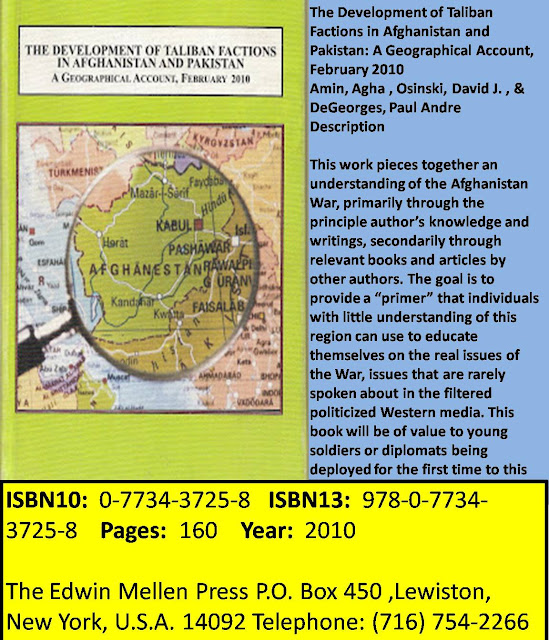




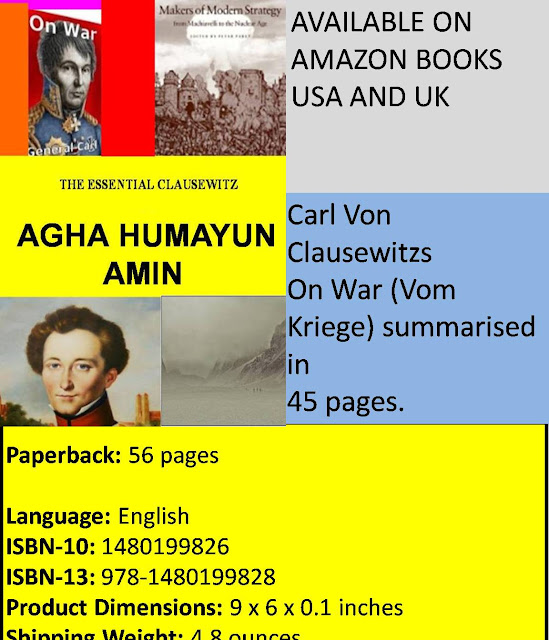


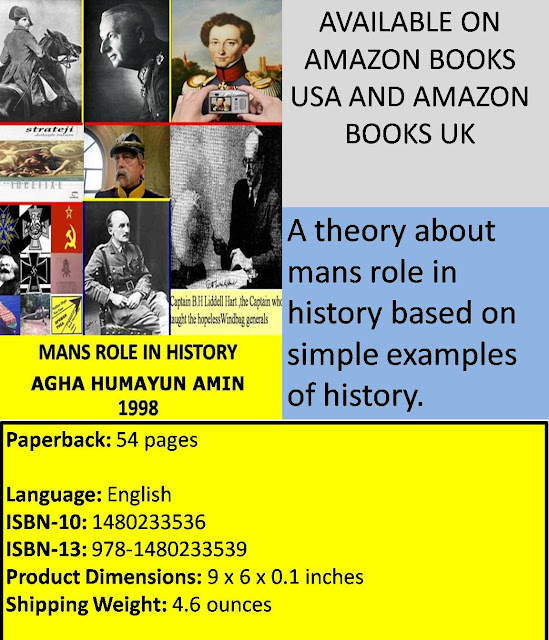



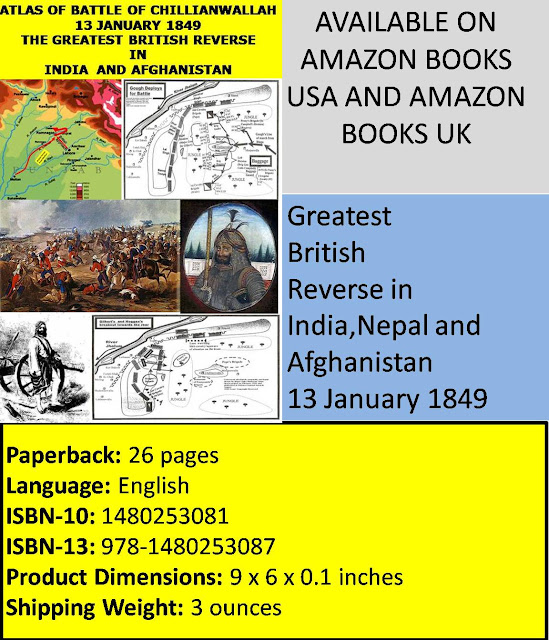

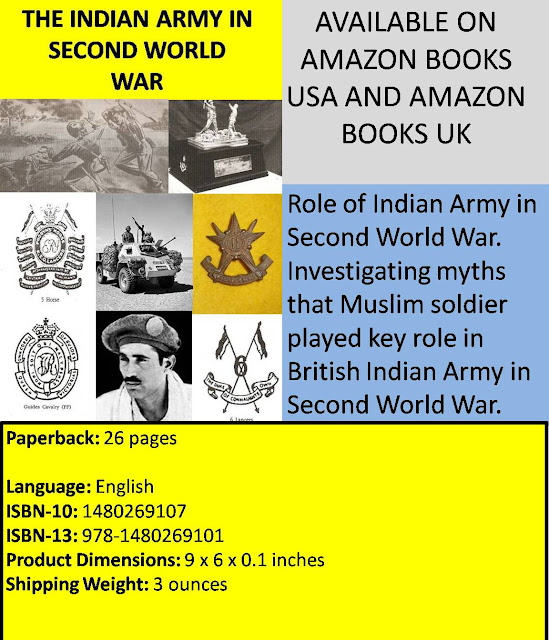


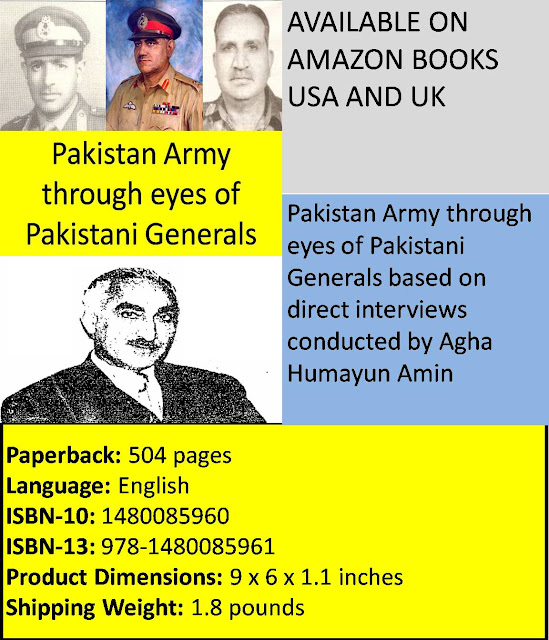

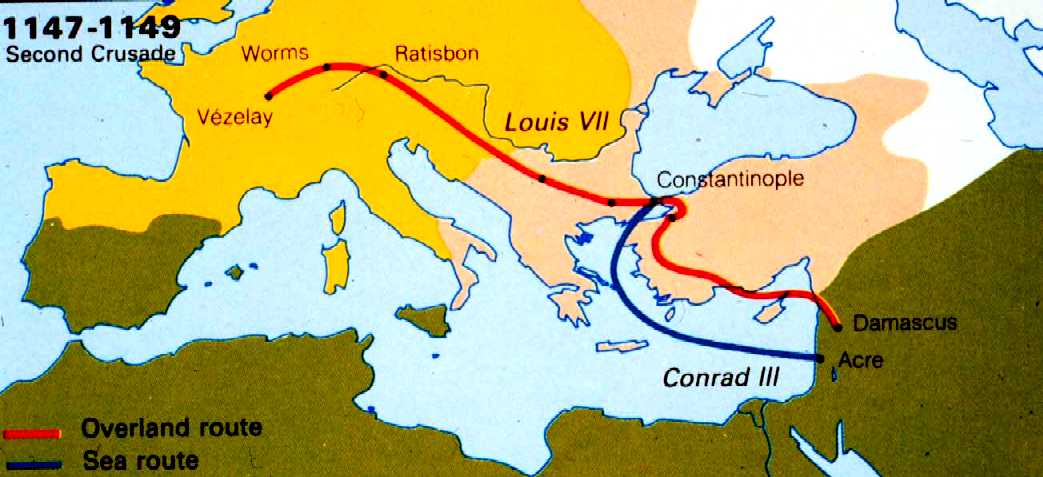
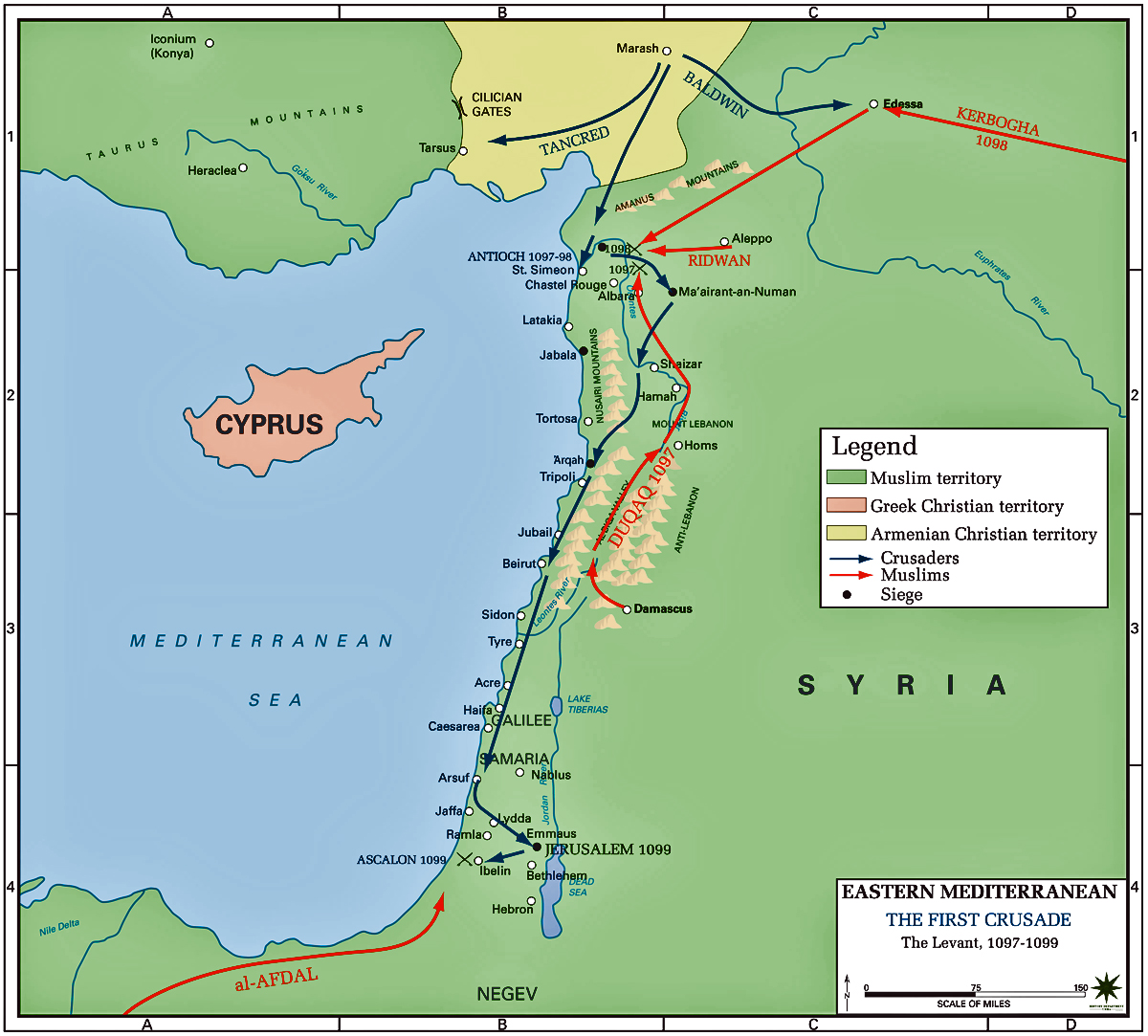
































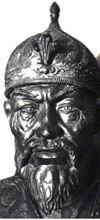























 Russia's Putin Praises Iran Nuclear Deal
Russia's Putin Praises Iran Nuclear Deal
It seems India too is facing a similar problem. Indian military wants a role in politics. They also want a role in South Asia.
Since, things are not going as they wished in Afghanistan, they are getting uneasy.